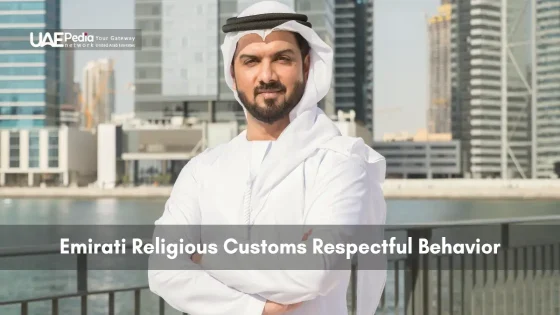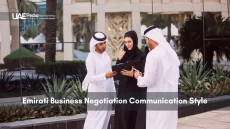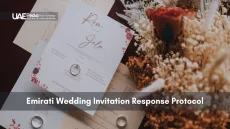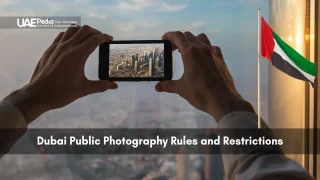Did you know 89% of UAE visitors say cultural awareness transformed their trip from good to unforgettable? This desert-meets-future nation thrives on traditions that shape daily life—whether you’re sipping karak chai in a Dubai mall or wandering Abu Dhabi’s serene mosques.
We’ve all felt that moment: stepping into a bustling souk, then pausing at a quiet prayer space. The UAE’s heartbeat lies in balancing heritage with innovation. That’s why this guide isn’t just about rules—it’s your backstage pass to why these practices matter and how they create deeper connections.
From handshakes to hospitality, small gestures reveal big respect here. Think of it as learning a few phrases before visiting a friend’s home. You’ll discover how local etiquette—like dressing modestly near sacred sites or accepting ghawa coffee with your right hand—shows appreciation for shared values.
The United Arab Emirates operates under a codified blend of Islamic law and federal statutes; visitors must cover shoulders and knees in public zones, use only the right hand for greetings, eating, and gift exchange, and completely refrain from eating, drinking, or smoking in public during Ramadan daylight hours. Daily life pauses five times for prayer; business hours, transport timetables, and venue access shift accordingly, so real-time prayer-time data (via apps or eSIM) is essential for accurate scheduling.
Photography is prohibited at government, military, and royal sites unless expressly permitted; verbal or gestural consent is required before capturing individuals, especially women. Public affection, swearing, and any form of religious or political criticism—online or offline—carry strict penalties. Licensed venues serve alcohol; possession or promotion of drugs, pork products, or alcohol outside these venues is illegal.
Ready to explore? Here’s what you’ll gain:
- A compass for navigating cultural moments with confidence
- Insights into traditions that shape Emirati daily life
- Real-world examples bridging modern travel and timeless norms
- Ways to turn respect into meaningful exchanges
Understanding Emirati Religious Customs and Respectful Behavior
Imagine walking into a Dubai café where lunchtime chatter pauses as regulars step away—not for a meeting, but for something deeper. This rhythm of life reflects traditions shaping modern interactions here. Islamic values influence everything from greetings to business hours, creating a unique blend of heritage and progress.
Local etiquette thrives on small gestures. A shopkeeper might close briefly during prayer times, while friends greet with warm “As-salamu alaykum” before discussing weekend plans. These moments aren’t rigid rules—they’re threads in the social fabric.
“Our traditions aren’t obstacles—they’re invitations to connect,” says a Dubai-born educator. “When visitors ask about Friday gatherings or Ramadan nights, it sparks conversations we cherish.”
Dress codes near sacred spaces and using your right hand for gifts or meals show awareness. Businesses often adjust schedules around spiritual practices, so planning around these pauses avoids hiccups. Even tech-driven cities like Abu Dhabi maintain this balance—you’ll spot quiet corners for reflection beside buzzing innovation hubs.
Curiosity opens doors here. Ask about coffee rituals or admire henna art, and suddenly you’re swapping stories with artisans. Think of these practices as keys—not locks—to experiences most travelers miss. Ready to turn “should I?” moments into “remember when…” stories?
Read More:
Emirati Etiquette for Women and Men
Picture this: You’re at a Dubai business lunch. A local colleague extends their hand—do you shake it? The answer often depends on gender. Social norms here blend tradition with pragmatism, creating distinct codes for women and men.
Local women might avoid physical contact with strangers. A smile and nod often replace handshakes unless they initiate. In contrast, men typically greet each other with a light hand clasp. One expat teacher in Abu Dhabi shares:
“When a male student’s father hugged me goodbye, I realized trust had deepened—but it took two years.”
Public spaces reveal subtle cues. Emirati women might adjust their shayla scarf when uncomfortable, while men lower their gaze to show respect. Mixed-gender interactions? Let locals set the tone. If a shopkeeper chats freely, respond warmly—but avoid personal questions.
Three quick tips:
- Greet women verbally first—wait for their cue
- Men should stand when someone enters a room
- Notice seating arrangements: genders often socialize separately
These practices aren’t about restriction—they’re social harmony tools. Like learning to drive on the right side abroad, adapting shows you’re paying attention. Watch for eyebrow raises or stepped-back stances—they’re gentle redirections. When in doubt? Mirror their lead.
Emirati Dress Codes and Modest Attire Guidelines
Ever packed a sundress for Dubai, then realized it’s perfect for brunch but not the Grand Mosque? What you wear here isn’t just fabric—it’s a conversation starter. Think of your clothing as a bridge between cultures: cover shoulders and knees in malls or government buildings, but feel free to rock resort-chic by hotel pools.
Let’s break down the dress code essentials. Religious sites require loose, ankle-length attire—lightweight abaya rentals work wonders. Business districts? Tailored blazers over sleeves hit the sweet spot. A Dubai-based fashion blogger advises:
“Carry a scarf. It transforms tank tops into mosque-ready outfits faster than you can say ‘Burj Khalifa.’”
Compare beach clubs and city streets:
- Resorts: Swimsuits welcome, but throw on a cover-up walking to the bar
- Souks: Light linen shirts > crop tops (vendors chat longer when you’re covered)
- Desert tours: Sun-protective layers beat spaghetti straps
Shoulders matter most in conservative areas—think Sharjah’s heritage districts versus Dubai Marina’s breezy promenades. Pro tip? Pack convertible pieces. A maxi dress doubles as a beach cover-up and museum outfit. Your wardrobe choices here aren’t restrictive—they’re golden tickets to hidden tea invitations and souk discounts.
Renting lightweight abayas at mosque entrances ensures quick entry and cultural compliance. Ref.: “Visit Dubai. (2024). What to wear in Dubai: your holiday packing list.”
Navigating Greetings and Social Interactions in the UAE
Ever noticed how a simple “hello” can unlock hidden souk discounts or spark impromptu coffee invites? Greetings here blend tradition with modern warmth—think firm handshakes that linger like desert sunsets, paired with phrases that bridge worlds.
Proper Handshakes and Gender-Sensitive Greetings
Your right hand becomes a cultural ambassador here. Men often greet with a steady, unhurried clasp—two pumps max. Women? Wait for their cue. A Dubai business consultant shares:
“I once extended my hand to a female CEO. She smiled and placed hers over her heart. I mirrored her—suddenly, we were allies.”
Three golden rules:
- Offer your hand first to same-gender locals
- If someone steps back, switch to a nod-and-smile combo
- Decline a handshake? Press your palm to your chest with a slight bow
Using Traditional Arabic Expressions
“As-salamu alaykum” works anywhere—it’s the Swiss Army knife of greetings. At brunch? Try “Sabah al-khair” (good morning). Want bonus points? Respond to “Kaif halak?” (how are you?) with “Alhamdulillah” (thanks to God).
Tourists often charm vendors by opening with “Marhaba” (welcome) at spice stalls. One traveler recalls: “I said ‘Shukran’ after buying dates—the seller gifted me saffron ‘for good manners.’”
Non-verbal affection shines too. Elders appreciate a hand-over-heart gesture, while friends might bump shoulders lightly. These silent dialects often speak loudest.
Adhering to Prayer Times and Religious Practices
Heard the melodic call drifting across Dubai Marina? That’s the adhan—a five-times-daily rhythm shaping life here. These moments pause mall shopping, delay taxi pickups, and reset business meetings. Like rush hour in reverse, the city breathes with these intervals.
Understanding Daily Prayer Schedules
Prayer times shift slightly daily based on sunlight. Apps like Muslim Pro or local eSIM services update schedules instantly. A café owner in Sharjah shares:
“Regulars know we close 15 minutes before Maghrib—it’s like intermission for connection.”
Three practical impacts:
- Government offices often close 30 minutes for afternoon prayers
- Delivery apps show longer wait times during Friday congregational prayers
- Hotel spas may restrict access to gender-segregated areas temporarily
Respecting daily prayer schedules enhances your itinerary planning by avoiding unexpected closures. Ref.: “Commisceo-Global. (2025). 8 Culture & Etiquette Tips When Doing Business in The UAE.”
Respecting Mosque Protocols and Guidelines
Non-Muslims can visit many mosques outside prayer times—if dressed appropriately. Loose clothing covering shoulders/knees is essential. A tour guide at Sheikh Zayed Grand Mosque advises:
“We provide abayas, but bringing your own scarf speeds entry during busy periods.”
Quick tips for encounters:
- If prayer starts while you’re shopping? Step outside quietly—vendors will return
- Snap photos of mosque exteriors freely, but ask permission indoors
- Remove shoes before entering carpeted prayer halls
These rhythms aren’t hurdles—they’re invitations to witness community bonds. For deeper insights into UAE cultural norms, check local event calendars aligning with spiritual seasons.
Photographing worshippers within mosques without explicit consent can breach cultural-sensitivity laws. Ref.: “Horizon Properties. (2024). Understanding Laws on Taking Photos and Videos in Public in the UAE.”
Observing Public Behavior and Decency Standards
Ever walked into a Dubai mall and wondered why everyone suddenly lowers their voices? Public spaces here hum with unspoken harmony—a blend of modern energy and timeless courtesy. Like adjusting your phone brightness in a theater, matching local norms ensures everyone enjoys the show.
Keep conversations calm in crowded areas like metro stations or museums. A tourism ambassador shares:
“Laughing loudly at 2 AM in a residential zone? That’s like honking in a library—save it for beach clubs.”
Three golden rules for blending in:
- Save hugs/kisses for private—even couples keep affection subtle
- Skip swearing or heated debates in shared spaces
- Pause music/videos when others are praying or working
Government buildings and mosques demand extra decorum. Remove sunglasses indoors, avoid pointing feet toward others, and let elders enter elevators first. One expat recalls: “I held a door at the Louvre Abu Dhabi for a local family—they invited me for karak chai afterward!”
Watch for these green flags:
- Shopkeepers offering unsolicited directions
- Strangers sharing umbrella shade in sudden rain
- Taxi drivers adjusting routes to show hidden murals
Respect here isn’t rigid—it’s a dance of awareness. Master the steps, and you’ll unlock spontaneous souk tours, free date samples, and that magical moment when “tourist” becomes “temporary local.”
Public displays of affection beyond hand-holding risk fines and jail under UAE decency laws. Ref.: “The Christian Science Monitor. (2010). What are the rules for public behavior in Dubai?”
Dining Etiquette and Hospitality in Emirati Culture
Ever been handed a date so sweet it makes you rethink dessert forever? Sharing meals here isn’t just about food—it’s a dance of generosity where every gesture carries meaning. Let’s unpack the unspoken rules that turn dinner invites into lifelong memories.
Using the Right Hand and Accepting Hospitality
Your right hand becomes your best ally at the table. Pass dishes, accept coffee cups, or scoop fragrant biryani—always with this trusted side. A Dubai chef explains:
“Declining seconds? Place your palm gently over the plate. It says ‘I’m honored’ better than words.”
| Gesture | Meaning | Pro Tip |
|---|---|---|
| Offering dates first | Welcome ritual | Eat at least one—it’s polite |
| Handing drinks left-handed | Accidental faux pas | Apologize with a smile |
| Leaving crumbs on the plate | Sign of enjoyment | No need to scrape clean |
Understanding Invitation Customs in Family Gatherings
Family feasts often start late and stretch for hours. Arrive 15 minutes after the stated time—rushing signals disrespect. Notice how women might serve guests first before eating? It reflects deep-rooted hospitality values.
Three quick tips for shared meals:
- Compliment the saffron rice—it’s a pride point
- Leave room for gahwa (Arabic coffee)—declining is rare
- Ask permission before photographing dishes
One traveler’s story: “I praised a host’s lamb machboos. Next morning, her son delivered leftovers to my hotel—with a handwritten recipe!” These moments capture the UAE’s culture of warmth.
Photography and Cultural Sensitivity in Public Spaces
Ever framed the perfect UAE sunset shot, only to notice a local family politely shielding their faces? Cameras here open doors to stunning vistas—but also require thoughtful pauses. Photography rules blend common sense with legal boundaries, especially near sensitive areas.
Look for posted signs at government buildings, military sites, or heritage zones—they’re your visual red flags. A Dubai tour guide shares:
“Always assume a ‘no photos’ rule unless signs or staff say otherwise. It’s easier to ask than delete later.”
Three quick checks before snapping:
- Mosques during prayers? Ask staff for permission
- Capturing strangers? Wave your phone with a questioning smile first
- Airport lounges or metro stations? Check ceiling signs
Restricted areas often include:
- Palace exteriors in Abu Dhabi
- Certain souk stalls with handmade goods
- Private desert camps visible from roads
One traveler’s lesson: “I photographed a Sharjah fort gate—a guard kindly explained it’s a protected monument. We chatted over cardamom coffee instead!”
Capturing images of military or police personnel may be prohibited, leading to confiscation of devices. Ref.: “Overlight Productions. (2023). Must Follow Photography Rules in Dubai, UAE.”
Need to photograph a shop owner’s spices? Try: “Mumkin as-sūra?” (May I take a picture?). Most appreciate the effort, even if they decline. For broader holiday etiquette tips, review local guidelines before your lens cap comes off.
Respecting these invisible lines doesn’t limit creativity—it sparks richer exchanges. After all, the best shots often come from moments of mutual understanding.
Using Public Transport and Local Taxis Respectfully
Notice how a local quietly moves to the metro’s pink-zone seats? Public transit here blends efficiency with unspoken courtesies. From air-conditioned buses to sleek taxis, these settings thrive on subtle gestures that keep everyone gliding smoothly.
Dubai’s metro reserves front carriages for women and families—marked in soft pink. Taxis often see passengers instinctively offering front seats to elders. A Sharjah resident shares:
“We don’t post rules everywhere—it’s about reading the room. If someone hesitates near priority seating, just smile and shift.”
Priority Seating and Behavior Guidelines
Watch for color-coded clues. Metro’s gold-class cabins require tickets, while green “silent zones” mean muted conversations. In taxis, many locals may prefer the backseat unless chatting with drivers.
Three quick transit hacks:
- Use your right hand to offer seats or assist with bags
- Download the S’hail app—it tracks buses and taxis in real time
- Save calls for stations—voices carry in quiet zones
Tech simplifies navigation, but human touches matter. Notice how regulars greet drivers with a nod? Mimic that warmth. Need broader cultural etiquette guidelines? Check local forums for updates before riding.
Remember: blending in means observing first. Did a family board? Stand up before they ask. Spot open seats in designated areas? Wait for cues. These small acts turn transit into cultural immersion—one respectful mile at a time.
Following Legal and Social Guidelines in the UAE
Your phone pings with a desert sunset Instagram post. But wait—did you check if that military base in the background was okay to photograph? The United Arab Emirates blends modern freedoms with clear legal guardrails. Think of it as a high-trust society where rules protect community harmony.
Laws here apply equally online and offline. A Dubai legal advisor notes:
“Critiquing leadership on social media carries the same weight as shouting it in a souk. The country prioritizes stability—disrespect isn’t just rude, it’s actionable.”
Three non-negotiable guidelines:
- Public affection beyond hand-holding risks fines
- Negative comments about local governance—even in private chats—can trigger investigations
- Religious criticism? Strictly off-limits
Watch for subtle signs you’re crossing lines. Security personnel approaching? Lower your voice. Someone discreetly covering their phone screen? They might feel recorded. In business hubs like Abu Dhabi Global Market, compliance is key—drunkenness or aggressive bargaining won’t fly.
Leisure places have rules too. Resorts allow swimwear, but leave cover-ups on when walking to restrooms. Nightclubs ban photos without consent. Even that viral TikTok dance could require permits if filmed near government buildings.
Quick checklist:
- VPNs won’t shield illegal online activity
- Prescription meds require prior approval
- Ramadan daylight hours demand discreet eating/drinking
The Arab Emirates rewards mindful visitors. Skip the stress—know the codes, then focus on mint tea moments and dune adventures.
Emirati Customs in Business and Communication Settings
Ever stepped into a Dubai boardroom where decisions unfold over cardamom coffee? Business here thrives on patience and personal rapport—like sand dunes shaping themselves over time. First meetings often start with light conversation about family or travel before pivoting to agendas.
Gender dynamics influence interactions. While many women hold leadership roles, some may prefer initial greetings without handshakes. A local consultant shares:
“I wait for female executives to extend their hand first. If they nod instead, I mirror their gesture—it builds immediate trust.”
Three pillars define successful partnerships:
- Formal titles matter initially—switch to first names only when invited
- Gift-giving? Avoid alcohol; opt for quality dates or artisanal chocolates
- Silence isn’t awkward—it signals thoughtful consideration
| Western Approach | UAE Nuance |
|---|---|
| Fast-paced deal closure | Multi-meeting relationship building |
| Direct communication | Diplomatic phrasing (“Perhaps we could explore…”) |
| Email-centric updates | In-person or video calls preferred |
Notice how men often lead negotiations, but women frequently finalize details? Adapt by addressing the senior member first while acknowledging all contributors. Avoid rushing discussions—Emirati partners value thoroughness over haste.
Pro tip: Learn basic Arabic phrases like “Shukran” (thank you) or “Insha’Allah” (God willing). These linguistic bridges show effort to embrace local culture, turning transactions into collaborations.
Social Media Conduct and Photography Permissions
Ever shared a Dubai skyline selfie only to realize a mosque’s minaret peeked into the frame? What you post here isn’t just pixels—it’s a digital handshake. Local etiquette blends ancient hospitality with modern tech-savviness, creating invisible lines every traveler should know.
A Dubai social media manager advises:
“Ask three times—once with your eyes, once with gestures, once verbally. Consent isn’t just polite here—it’s the law.”
| Action | Tip | Why It Matters |
|---|---|---|
| Posting mosque photos | Tag locations, not people | Preserves privacy of worshippers |
| Sharing souk videos | Mute audio if calls to prayer play | Reserves sacred sounds for context |
| Captioning desert content | Use greetings like “Marhaba!” | Shows cultural awareness |
Four rules for staying savvy:
- Locals may prefer blurred faces in market shots—zoom on spices, not smiles
- Commenting on UAE posts? Start with a greeting (“Sabah al-khair!”) before emojis
- Check geotags: military zones and palaces often ban public shares
- Snap sunset dunes freely—but avoid tagging exact desert camp coordinates
Notice how Emirati influencers often showcase landscapes over personal moments? Mirror this focus. When unsure, ask: “Hal yumkinani nasher hadhihi al-sura?” (May I share this photo?). Most people appreciate the effort, even if they decline.
Online etiquette here mirrors real-life warmth. Compliment a chef’s recipe in a reel? They might DM you a family secret. But critique traffic? Save it for private chats. Like bringing dessert to a gathering, thoughtful posts become invitations—not intrusions.
Practical Tips for Tourists Using an eSIM in the UAE
Your phone buzzes with a prayer time alert from your eSIM—welcome to traveling smart in the UAE. These digital SIM cards aren’t just about connectivity; they’re cultural compasses in your pocket. Imagine accessing real-time mosque visiting hours or translating a vendor’s Arabic greeting instantly. That’s the experience boost modern travelers crave.
Stay informed without breaking stride. Apps like Visit Dubai or Dubai Metro sync with your eSIM to deliver etiquette reminders. One traveler shared:
“My eSIM’s gender-specific seating alerts saved me from awkward metro moments. Locals noticed the effort—conversations flowed easier after that.”
| eSIM Feature | Cultural Benefit |
|---|---|
| Live prayer time updates | Respect spiritual rhythms in public spaces |
| Offline translation tools | Engage appropriately with men and women in markets |
| Real-time event maps | Discover hidden traditions like falconry displays |
Three ways to level up your trip:
- Bookmark Unexpected Dubai—an app showcasing Emirati storytelling spots
- Use AR navigation in malls to find prayer rooms discreetly
- Download etiquette guides before entering business hubs or heritage sites
Connectivity becomes cultural bridge-building here. Need saffron in Deira? Your eSIM finds ethical sellers. Craving authentic gahwa? Location tags lead to family-run cafés. Stay curious, stay connected—every megabyte deepens your understanding of this dynamic culture.
Final Reflections on Embracing Emirati Traditions
Sunset over the dunes turns golden as a shopkeeper folds his prayer mat—a moment where heritage and hospitality intertwine. Navigating this vibrant culture isn’t about memorizing rules, but embracing rhythms that reveal the nation’s heart.
Simple gestures speak volumes. Covering shoulders at heritage sites or savoring food with your right hand becomes a bridge. Women and men each shape social tapestries—from market banter to family gatherings. One traveler recalls: “Sharing dates with a local family taught me more about warmth than any guidebook.”
Your clothing choices and quiet affection in public spaces signal respect. While dress codes adapt across cities, mindful attire opens doors to spontaneous tea invites. Business deals unfold over cardamom coffee, and souk chats spark friendships when you mirror local etiquette.
This country rewards those who lean in. Whether admiring henna artistry or navigating men women dynamics, curiosity becomes your compass. Every “shukran” and covered shoulder weaves you deeper into the story—not as a spectator, but a participant in living traditions.
Opt for loose clothing covering shoulders and knees in public areas. Women may carry a shayla scarf for mosque visits. Beachwear stays at resorts – swap bikinis for rash guards when exploring cities.
Men greet Emirati men with handshakes, but wait for women to extend their hand first. Some locals prefer placing the right hand over the heart – mirror this gesture with a warm "As-salamu alaykum."
Muezzin calls echo five times daily. Lower music volume, pause conversations during devotions, and avoid walking closely in front of worshippers. Check apps like Muslim Pro for exact schedules.
Grand Mosque in Abu Dhabi welcomes cameras, but avoid filming worshippers. Neighborhood mosques? Ask permission first. Pro tip: Sunset shots at Sheikh Zayed Mosque create golden-hour magic!
Pass dishes and eat using your right hand only – left hands stay in laps. Try luqaimat (date doughnuts) from shared platters, but never decline Arabic coffee without a polite "shukran."
Snap desert selfies freely, but blur license plates and avoid posting pics of local women/children without consent. Government buildings? Check for camera icons with red slashes – those mean no shots.
Arrive 10 minutes late – punctuality shows eagerness here. Present cards with your right hand, and expect multiple tea refills. Decisions often come after several majlis discussions, so pack patience with your proposals.



















